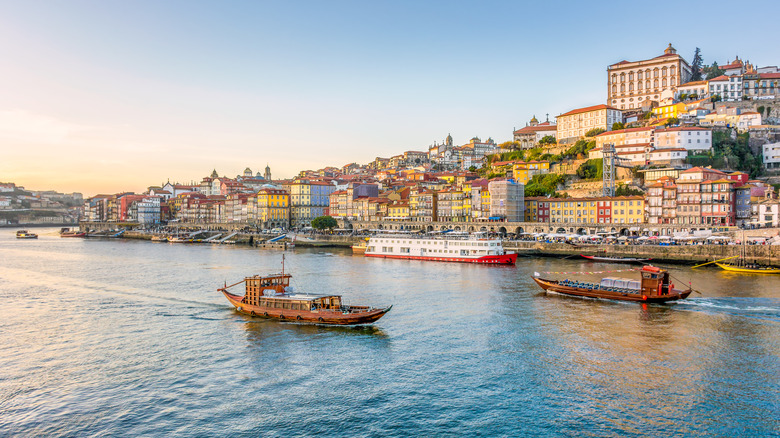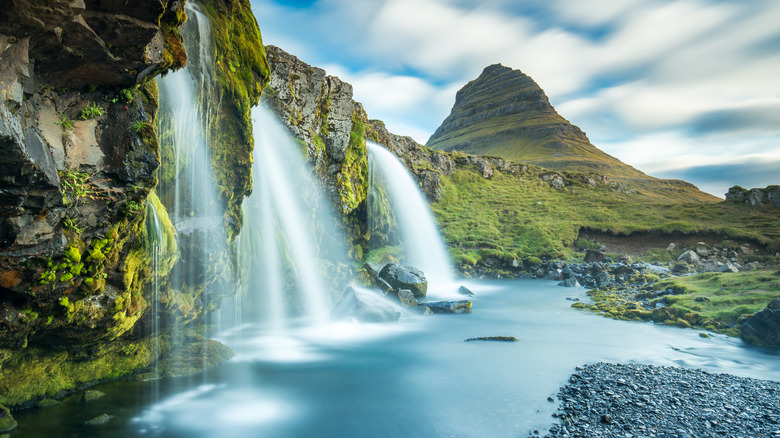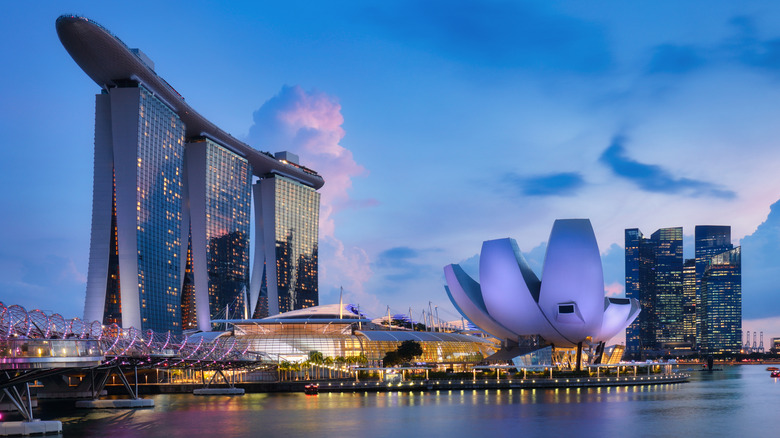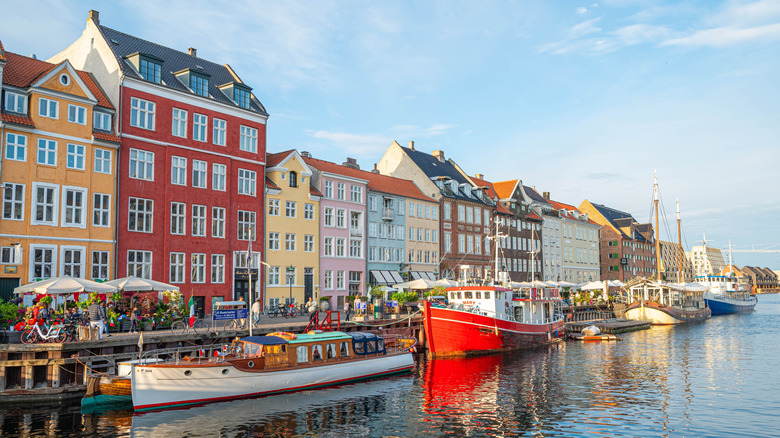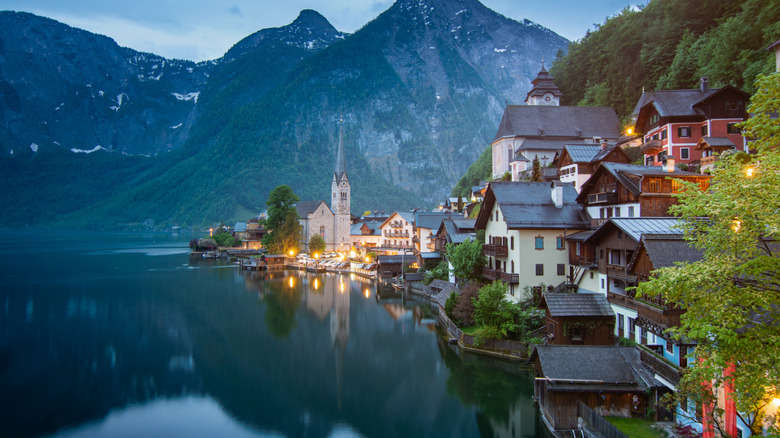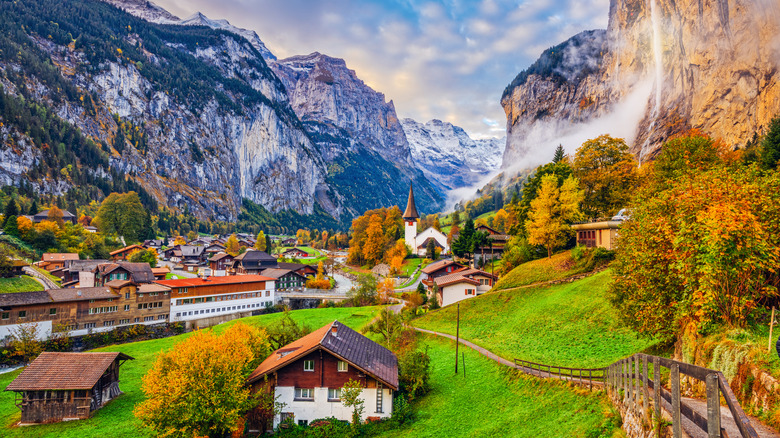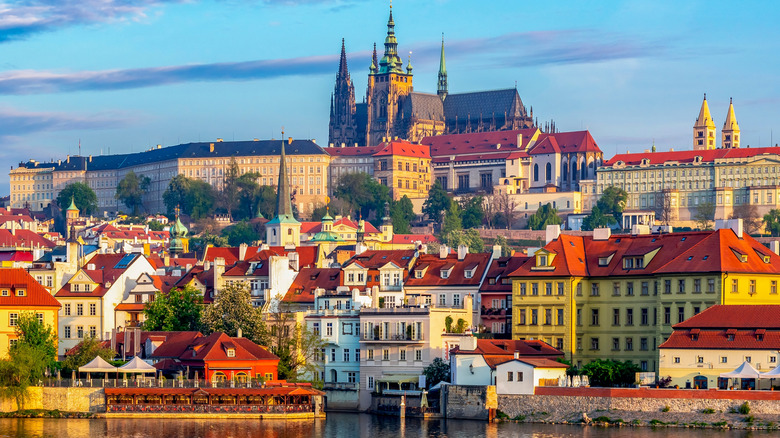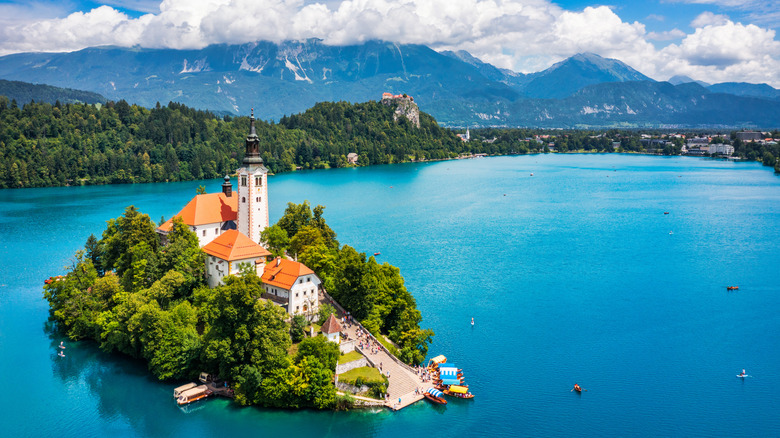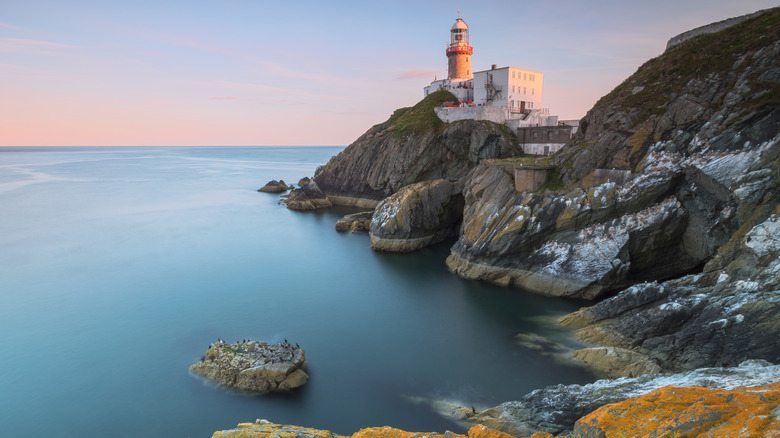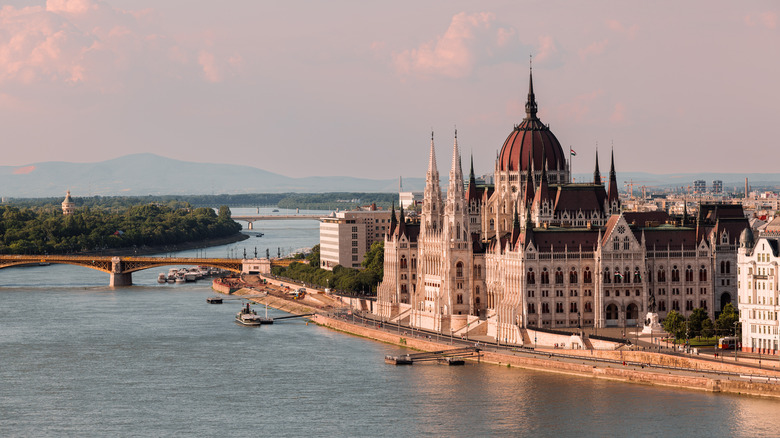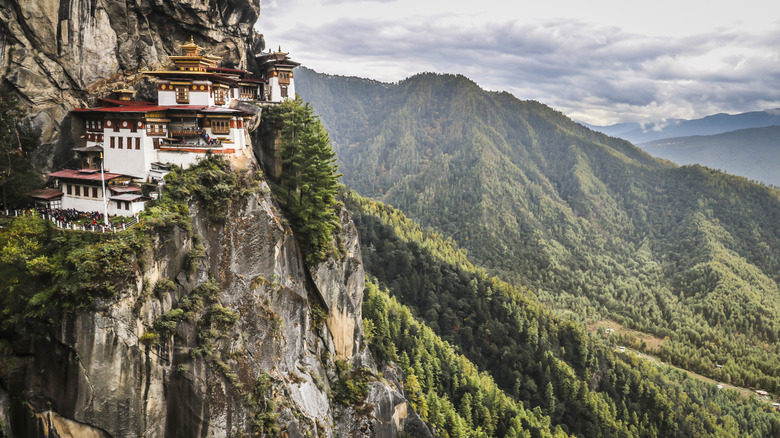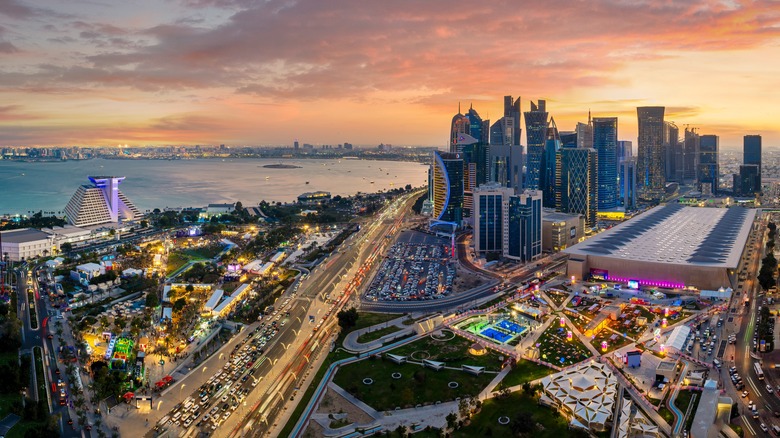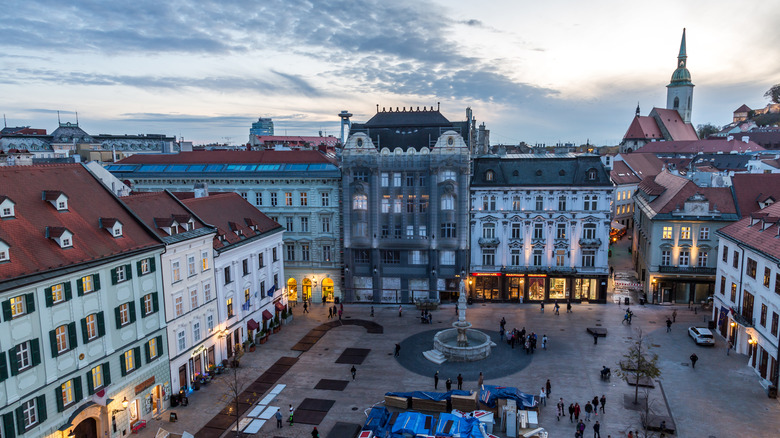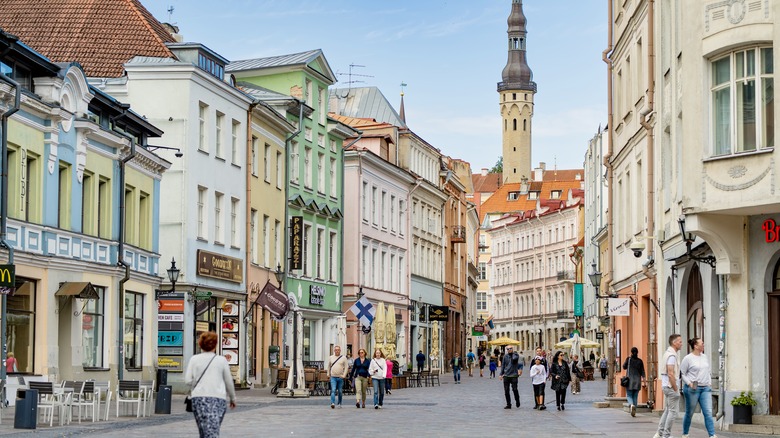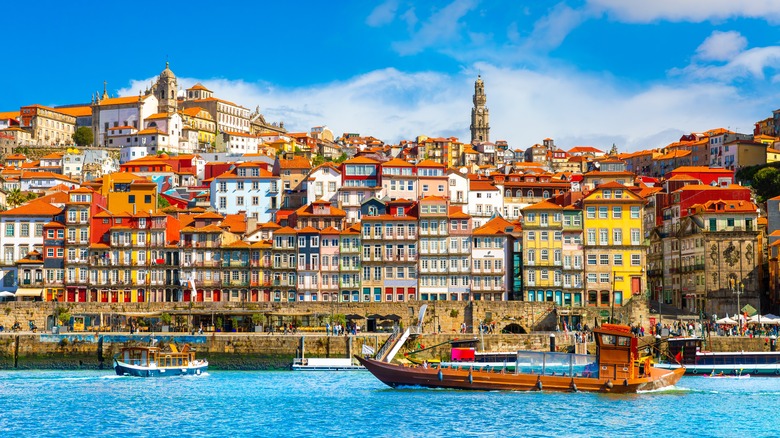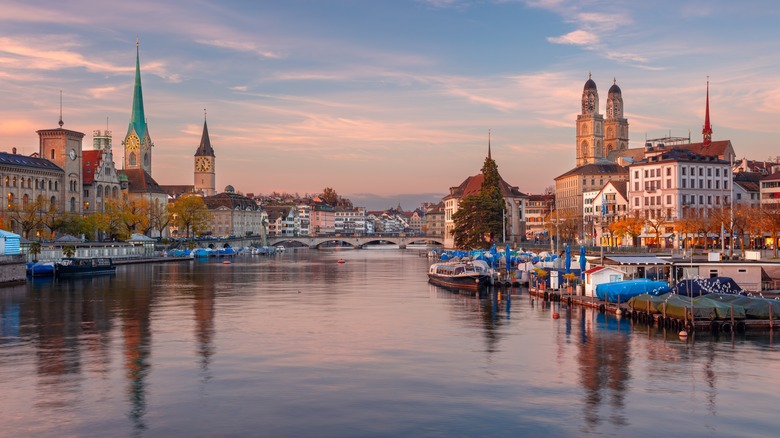Looking For A Worry-Free Vacation? These Countries Are Ranked The Safest In The World For 2025
When it comes to choosing a travel destination, safety is often a top priority — especially for solo travelers, families, and those exploring new parts of the world for the first time. Fortunately, there are many countries that combine low crime rates, political stability, and a tourist-friendly environment, making them ideal for a worry-free getaway. According to a recent survey by British company HelloSafe, these countries stand out as the safest in the world, offering not only peace of mind but also plenty of charm, beauty, and adventure.
From exploring Iceland's glacial landscapes to visiting Bhutan's quiet monasteries, an unforgettable vacation doesn't have to mean compromising any safety. The survey analyzes countries with 35 different criteria (from natural disasters to violence and involvement in armed conflict). We also utilized other resources, such as the Global Peace Index and perspectives from travelers, for additional insight. Of course, safety can be a nuanced topic that varies for different groups, and even in the safest places, it's still important to stay alert, respect local customs, and take basic precautions. Overall, these countries prove that you can see the world and feel safe while doing so in 2025.
Iceland
With its seafront villages, glaciers, and fjords, Iceland is a one-of-a-kind destination that frequently tops travelers' bucket lists. And cautious visitors can rest assured that it's consistently recognized as one of the world's safest countries. In fact, Iceland has held the top spot for safety on the Global Peace Index since 2008, thanks to its low crime rate and one of the lowest murder rates in Europe.
Travelers should keep in mind one potential risk: The weather. "The landscape is harsh," explains the travel blog, The Broke Backpacker. Extreme storms, sudden changes, and snowfall are all the norm, so be aware of this, especially while driving across the country. Road closures can happen due to weather, and you'll want to be extra careful during snowfall or strong wind. Accidents can also happen when road surfaces change from pavement to gravel. Earthquakes and volcano eruptions are also a possibility here.
Singapore
Singapore is another destination that consistently tops lists of the world's safest destinations, and travelers who have visited can attest to it. "I've been to Singapore three times, and have always felt very safe there," said travel blogger Claire's Footsteps, who visited solo for two of her trips. "The biggest thing to be mindful of when travelling here is not accidentally breaking any Singaporean laws, which are quite strict!"
Crime rates are very low in Singapore, with most crimes attributed to scams and cybercrime. Violent crime is extremely rare — in 2021, for every 100,000 people, only nine people experienced a violent crime, according to Statista. It's important to note that there is a strict legal system and harsh punishments for crimes for both residents and foreigners. With that in mind, travelers should be aware of local laws and penalties while here.
On that note, LGBTQ+ travelers should also note that same-sex marriages are not recognized in Singapore, and consensual sex between two men was only recently decriminalized. Despite this, LGBTQ+ travelers are generally welcomed, but they may want to exercise caution with public displays of affection.
Denmark
For safety-conscious travelers seeking a country with natural beauty, a rich history, and one that also happens to be one of Europe's most kid-friendly destinations, Denmark is an unbeatable choice. This Scandinavian country boasts low crime rates, with just 9,543 crimes per 100,000 residents, according to Statista), and ranks eighth on the most recent Global Peace Index. "During my month-long solo stay in Copenhagen, I felt completely safe at every hour," said travel blogger The Lady Who Travels. "Even when my flight arrived around 11 p.m., I used public transport with no fear."
Of course, there are some risks travelers may want to be aware of. According to the U.S. Department of State, Denmark is considered a "Level 2: Exercise Increased Caution" due to possible terrorist attacks. Additionally, pickpocketing can be a risk, especially at transit stations, on public transportation, and in other public places like restaurants or bars. Be sure to keep a close eye on your things and avoid leaving your bag on the ground or behind your seat.
Austria
From its charming Alpine towns to cultural gems like Vienna and Graz, Austria has so much to offer travelers — without the stress. With some of the lowest crime rates in Europe, Austria was ranked as the world's second safest country last year by The Global Peace Index. "I've gone to Austria solo before in the dead of winter. Never felt unsafe or uneasy," said one Redditor in r/solofemaletravellers. "I would take public transportation and never had an issue."
Although travelers can rest assured that risks are relatively low here, like in most places, you'll still want to be aware of possible pickpockets, especially in crowded tourist areas. Areas like St. Stephen's Cathedral or the First District areas in Vienna and public transportation in the capital are particularly prone to theft, according to the U.S. State Department. Demonstrations are also common and have become violent in the past, so if your travels align with a protest, just try to avoid the area and follow local media for updates.
Switzerland
Sticking with destinations packed with gorgeous Alpine scenery, charming towns, and lots of outdoor adventure, Switzerland is another one of the world's safest spots. Although Switzerland is generally quite safe, this is another destination where you'll want to be mindful of pickpocketing and be sure not to leave any items unattended while in major cities like Basel, Geneva, or Zurich. Vehicle break-ins and bicycle theft can sometimes impact tourists, as well.
And if you're planning to visit some of Switzerland's breathtaking European mountains (which you absolutely should), be aware of potential natural hazards. The U.S. State Department warns travelers that avalanches, landslides, flooding, and falling rocks are frequent, along with sudden weather changes. So, before you head out for a hike or ski trip, it's important to be aware of safety precautions like staying on designated paths, following local advice, checking weather forecasts, and not participating in mountain activities alone.
Czech Republic
If you're looking for a worry-free destination beloved for its dazzling cities, fairytale castles, and friendly locals, the Czech Republic has to be on your radar. With a Global Peace Index score of 1.459, the Czech Republic (also known as Czechia) is one of the safest countries in Europe, thanks to its low crime rates. In 2023, the Czech Republic documented just 1,667.7 crimes per 100,000 residents, only 120.6 of which were violent crimes, according to the Czech Statistical Office.
The risk of pickpocketing can be higher in Prague, especially in crowded areas like the city center or on public transportation. Additionally, auto thefts and break-ins are not uncommon, and you'll also want to be careful to only utilize ATMs or exchange money at secure locations like commercial banks. LGBTQ+ visitors may also want to use discretion when traveling outside of Prague, and female travelers should also be careful to not leave drinks unattended while in bars or nightclubs, according to the U.S. State Department. With that said, many visitors report feeling safe throughout their time here, like travel blogger He Travels Solo. "I kept a watchful eye on my belongings — as any savvy traveler would. But I never once felt unsafe or threatened during my time in the Czech Republic ... Fellow travelers I met along the way echoed similar sentiments."
Slovenia
Slovenia is not only one of Europe's most underrated countries, but it's also one of its safest, making it a must for anyone seeking pristine nature, diverse landscapes, and picturesque towns in a peaceful environment. Crime is minimal, but purse snatching and pickpocketing are possible, particularly in Ljubljana late at night. Aside from this, bicycle theft is also relatively high, so always secure your bike when not in use. Still, Slovenia is rated the seventh safest country in the world by the HelloSafe Safety Index and ranks consistently high on the Global Peace Index, so travelers who follow common sense safety precautions shouldn't worry.
"I have travelled around the country several times, including alone, and have never felt the slightest sense of insecurity, even in the evenings in the streets of Ljubljana or in remote villages," said travel blogger ZigZag on Earth. However, while same-sex marriage is legal and the LGBTQ+ community is legally protected from discrimination, travelers should be aware that there have been a number of violent incidents in the past, according to the U.S. Department of State.
Finland
For eight years in a row, Finland has been rated as the happiest country in the world by the UN's World Happiness Report, so it's no surprise that it also ranks as one of the world's safest. As a leader in income equality and gender equality with well-run infrastructure and widespread access to education, visiting Finland is a no-brainer for cautious or concerned travelers. Many people speak excellent English, making travel even easier for English-language explorers. Like in other Nordic countries, crime is minimal. In 2023, the crime rate reached 91.23 per 1,000 people, according to Statista.
Once again, the biggest risk tourists typically face is pickpocketing, and, like anywhere, you'll want to take precautions and stay aware of your surroundings by avoiding isolated areas at night. "I've lived here over 20 years, I always used to walk home from the bus or train at 2 a.m. after a night out with no problems," confirmed a Redditor in r/Finland. "It's incredibly safe."
Ireland
Widely considered a safe and welcoming place, Ireland is ranked ninth by HelloSafe. Beloved for its stunning landscapes, unique culture, and historic cities, not to mention its unbeatable nightlife, Ireland is a great choice for solo travelers, families, or anyone especially concerned about safety. Violent crime rates are low, although cases of theft have risen in recent years, according to the U.S. Department of State.
Following common sense precautions should ensure a worry-free time in Ireland. If you're renting a car, keep in mind that it's advised that you remove the rental sticker, always keep your doors locked, and don't leave valuables visible in the car. "As I always say to any visitors, Dublin is a capital city like any other, there are pickpockets and people begging etc ... but 99.999% of the time you will have a great time," said one Redditor in r/IrishTourism." They went on to say that Ireland "is a perfectly safe country to travel solo in and people will always be willing to help (if lost)."
Hungary
With its amazing food and fantastic spa towns, Hungary is a country that needs to be on more tourists' radars. It's also the perfect worry-free vacation, as Hungary has had a significant reduction in crime over the past 30 years and is generally considered a safe place to travel. However, as always, travelers should remain alert and aware of their surroundings. In crowded areas like bus stations and on public transportation, pickpocketing is possible. And it's best to always verify costs before purchasing food, beverages, or a taxi service, as some tourists have been overcharged, says the U.S. Department of State, which has also received some reports of hate crimes based on race.
"I found the people in Budapest to be some of the friendliest in all my European travels," said one Redditor in r/EuropeTravel. "The city is bright, clean, vibrant, happy, and sunny. Sure, go to the outer fringes away from the more popular areas, you'll find sketchy areas, just like in any city. But if you stay in the city center, you'll be absolutely fine. I LOVED this city."
Bhutan
With gorgeous Himalayan scenery, ancient monasteries, and distinct culture, Bhutan is an unforgettable destination for travelers looking to venture beyond the typical tourist path. A guide is also strongly recommended for your travels (and is required on treks), making a trip here practically seamless. "It's perfectly safe," said one Redditor in r/Travel. "Not a single time where I felt unsafe, even when walking through the city in the dark without our guide."
According to the U.S. State Department, petty crime is possible, and crimes related to skin color, ethnic origin, and religion have increased in the past few years. Generally, Bhutan boasts an extremely low crime rate. The largest risks to be aware of are road accidents due to some treacherous conditions around Bhutan's mountains, with some potential danger also due to flooding or landslides, particularly in monsoon season. You may also see stray dogs in some areas and should always exercise caution.
Qatar
Travelers curious about exploring Qatar's incredible architecture, vibrant markets, and unique blend of cultures can feel confident that it's one of the world's safest destinations. "As a female, I feel more safe here than I ever did in Europe or the U.S.," commented one Redditor in r/Qatar. However, there are some safety-related elements to keep in mind while here. Perception of safety may depend on your identity, and it's definitely important to be aware of laws and other societal expectations while here.
For instance, although crime is low, Qatar has a large police presence, and criminal penalties are harsher than in the U.S. for issues like alcohol-related offenses or incidents involving obscene language. LGBTQ+ travelers may also want to do more research before visiting Qatar, as sex between men is illegal, and public displays of affection between any couples could potentially lead to arrest. Additionally, all genders are expected to dress modestly, and women (in particular) should be careful to avoid clothing like sleeveless shirts or shorts.
Slovakia
With fairytale castles and towering mountains, this Central European country is a gem for travelers looking for a less over-touristed destination. As the 13th safest country in the world, according to HelloSafe, travelers can enjoy a stress-free vacation in Slovakia, completely going against any preconceived notions about Slovakia that may exist thanks to ridiculous movies like "Hostel" or "Eurotrip." Even in Slovakia's capital city, beautiful Bratislava, the charms of its medieval history can be enjoyed without a care in the world. This is a seriously safe place.
That said, LGBTQ+ travelers should take note that same-sex marriages are banned in Slovakia, and while discrimination is legally prohibited, this isn't always enforced. Unfortunately, prejudice exists. Street crimes like pickpocketing or theft are also possible, especially in crowded tourist areas like Bratislava's Old Town or on public transportation. At nightclubs, some tourists have also experienced issues like over-inflated bills or spiked drinks, according to the U.S. State Department.
Estonia
If Estonia's medieval cities, rich traditions, and historic spa towns are calling to you, then get yourself to this beautiful Baltic country. Luckily, it also happens to be one of the world's safest countries. "I've travelled solo here twice and faced no issues at all," said travel blogger Third Eye Traveller. With a crime rate that's drastically decreased over the past two decades (as of 2021, the crime rate is 1.96 per 100,000 people, compared to 20.46 in 1994, according to MacroTrends), this Baltic country is a great choice for solo travelers and families alike.
Pickpocketing and petty theft can occur, particularly in crowded areas like Old Town in Tallinn, and often through diversion. Most cases also happen to travelers who are alone and/or intoxicated at night, says the U.S. State Department. Drink spiking and credit card fraud are also possible. For LGBTQ+ travelers, same-sex marriages were legalized at the beginning of 2024 — and although support has risen in recent years, harassment and discrimination are possible.
Portugal
Portugal has become an increasingly popular destination, with its gorgeous beaches and medieval castles. And with low crime rates, a secure economic situation, and political stability, it's no wonder why Portugal is considered one of the world's safest places. The Global Peace Index confirms this, consistently ranking Portugal high for safety — in 2024, it came in at number seven.
Of course, taking common sense safety measures will serve you well in this Iberian Peninsula destination. Be careful with your bags and valuables, particularly at popular tourist destinations, restaurants, and on public transportation. Stick to only using ATMs in indoor banks if possible, and don't leave valuable items visible in rental cars. Demonstrations also occur in Portugal, so as a tourist, do your best to avoid them and check local media for updates. Portugal also does have some risk when it comes to natural disasters — wildfires and flooding have been an issue in recent years, and there's also a chance of earthquakes.
Methodology
These are the top safest countries for 2025 according to the HelloSafe Safety Index, which scores countries from 0 to 100 (0 being the safest). The survey utilizes 35 separate criteria, grouped into five different categories: Occurrence of natural disasters, violence in society, involvement in internal or external armed conflicts, health infrastructure, and militarization of the country. To provide additional safety-related information, we've also referred to the Global Peace Index, as well as the U.S. Department of State. We have also verified crime rates through resources such as Statista and Macrotrends and used Reddit threads and travel blogs to include opinions from travelers and locals.
